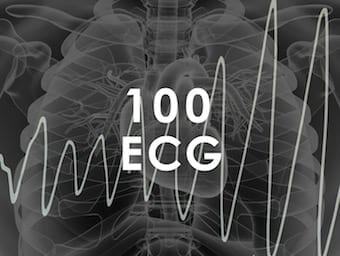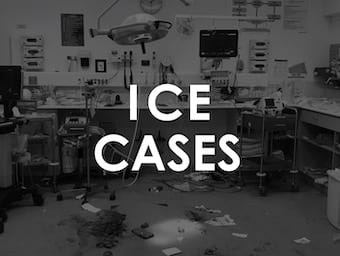
Airway ultrasound the oesophagus
Transverse views of the lower anterior neck. The aim is to visualise the trachea and oesophagus, so that during tracheal intubation, inadvertent oesophageal intubation may be identified and immediately corrected.
The LITFL Critical Care Compendium is a comprehensive collection of pages concisely covering the core topics and controversies of critical care.

Transverse views of the lower anterior neck. The aim is to visualise the trachea and oesophagus, so that during tracheal intubation, inadvertent oesophageal intubation may be identified and immediately corrected.

Why direct laryngoscopy is scheduled for termination.

29 yr old male presents complaining of vomiting, dizziness and felling 'vague'. Describe and interpret this ECG. LITFL Top 100 ECG

Conceptos en Medicina de Urgencia is an emergency medicine conference based in Chile. This page includes the resources for my presentations at Conceptos

A femoral arterial blood gas sample is obtained from a 41 year old man...obtained when the barometric pressure was 272mmHg and the PiO2 47mmHg

A 57 year old man presents to the ED with 18 hours of severe upper abdominal pain, fever, nausea and vomiting. He looks jaundiced, his HR is 120bpm, BP 110/60, RR 22 and his temperature is 37.8oC. He is tender and guarded in his right upper quadrant on abdominal palpation.

This is quick reference page to acid base disorders in toxicology and osmolar gaps. Zeff a toxicologist from Melbourne talks through his approach and the errors that can occur with osmolar and anion gaps.

97 year old gentleman found unconscious at home. Brought into emergency by ambulance at 10am having last been seen at 8pm the evening before.

Antidotes are agents that counteract the effects of a toxic agent on the body. They do not primarily affect the systemic absorption or removal of toxic agents from the body (i.e. decontamination and enhanced elimination respectively)

In specialist centres, extracorporeal membrane oxygenation (ECMO) is a now a mainstay of the management of cardio/respiratory failure refractory to other measures. However, much of the clinical information required to care for ECMO patients at the bedside remains inaccessible to…

WHAT IS EUBOXIA? ‘Euboxia‘ is the pathophysiological state whereby ‘all boxes on a pathology print-out are in the normal range’ (Reade, 2009). LITFL — Don’t put your patient in a box Reade MC (2009). Should we question if something works…

Mini Tracheostomy: narrow bore tracheostomy tube inserted through the cricothyroid membrane